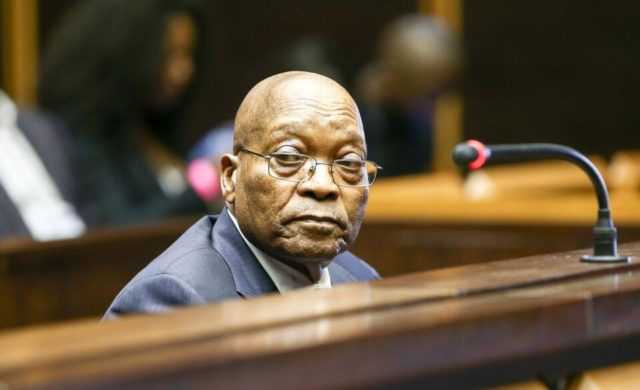The long-running legal duel between former president Jacob Zuma and Deputy Chief Justice Raymond Zondo is seemingly far from over.
THE LONG-running legal duel between former president Jacob Zuma and Deputy Chief Justice Raymond Zondo, who chaired the state capture commission, is seemingly far from over.
It has emerged through court papers filed on December 10, 2021, for the North Gauteng (Pretoria) High Court, that weeks before Justice Zondo delivered the first batch of the state capture report to President Cyril Ramaphosa, Zuma was preparing to argue that Justice Zondo was unlawfully appointed to chair the commission.
The retired Zuma, who is one of the protagonists fingered in the first batch of the report, contends that, as such, all summons, directives and rulings made by Justice Zondo while on the chair should be legally nullified.
Zuma opens his case by saying that Justice Zondo abused several provisions of the law when he applied to have him compelled to testify before the commission. He argues that conduct in relation to him “was entirely biased and lacking the standard of impartiality of a judge and a chairperson of a judicial commission of inquiry”.
Furthermore, Zuma contends that the gravity of Justice Zondo’s allegedly unlawful conduct in relation to his appearance calls for a frontal challenge to the lawfulness of his appointment and consequently the lawfulness of his directives, rulings and decisions relating to him.
“I do not wish to be understood to be against any investigation of corruption including that which implicates me. I am against that being done for political expediency by one of the highest judicial officers on the terms of an unlawful appointment.
“I believe that my grounds for the recusal of the chairperson on the basis of bias include that he (the chairperson) appeared to have accepted the political narrative powered by a faction in my political party, the ANC, that he endorsed readily as legitimate evidence that I promoted state capture and corruption.”
The former president is still steadfast in believing that Justice Zondo had an axe to grind with him, hence his refusal to recuse himself when asked to do so.
“I believe that the chairperson targeted me and it came to me as no surprise that he was bold enough to disregard the fundamentals of his judicial office and to violate his own oath of office to perpetuate a grave injustice on me. What he did after I failed to appear before his commission amounts to an abuse of judicial power which could only happen because he misunderstands the lawfulness of his appointment,” Zuma says in the court papers.
Zuma noted that he is acutely aware of the implications for the country.
“As, in the recusal application before the commission, I do not file this review application lightly because I am acutely aware of its impact on the general political landscape of South Africa. I fully appreciate the immense public and national interest and concerns regarding the state of our constitutional governance and system, the decaying state of our national institutions which are characterised by rampant and debilitating levels of corruption and fraudulent transactions. I also believe that some of these issues may be addressed through a judicial commission of inquiry.
“However, such a chairperson appointed to chair that judicial commission of inquiry must be lawfully appointed in accordance with our Constitution. Our Constitution does not permit reliance on unconstitutional means to achieve national goals in combating corruption and malfeasance in public administration and affairs. I, therefore, seek to correct a grave constitutional and national error in terms of which the chairperson was appointed.”
In the same court papers, Zuma contends that Justice Zondo abused his powers by directly approaching the Constitutional Court to enforce his own orders for him to appear before the commission.
According to Zuma, a lower court such as the high court should have been the final arbiter on the matter, not the apex court.
– Political Bureau








